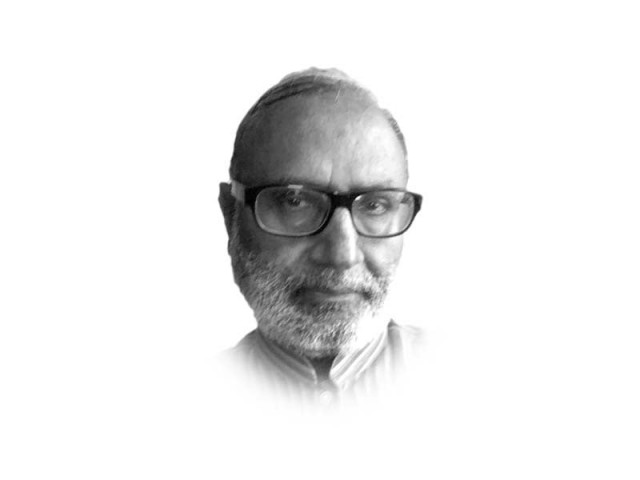SSK Resource Centre, Gilgit
Throughout NFRs, SSK is trying to convince political leaders that his programmes can support not supplant govt efforts

A few years ago, the Aga Khan Rural Support Programme (AKRSP) mobilised a woman group in the remote Rehmatabad union council of Immit to save and take charge of their own lives. Today they have substantial savings and proudly showed me around the vocational centre of their own. The message of Shoaib Sultan Khan, the founding father of the AKRSP, in the 1980s lives on — not only in Gigit-Baltistan but all across Pakistan. In the morning of last Sunday, leaders of the rural support movement from all over Pakistan gathered in Gilgit to celebrate the life and work of the icon in his presence. Now in his nineties, SSK has to his credit the doubling of income of a hundred thousand poor in a remote region. He inaugurated SSK Resource Centre. It is a museum that reflects his simple living style and displays his collection of art and artifacts. Photographs have been arranged to give a bird’s eye view of his journey into an uncharted territory of development. While these provide the ambience of a knowledge lounge, the meticulously collected sources of knowledge include manuscripts, papers, books read and authored by him, or written about him.
Most important for researchers are what SSK called Notes for Record (NFRs). In the colonial days, civil servants compiled district gazetteers cataloguing the geo-economic and socio-cultural conditions. However, the NFRs by SSK are a class apart. These are the most prized collection of the Centre. They record every community meeting and other interactions that he held since 1982. But these are not just minutes. There are interesting observations on persons and groups, insightful analyses of the discussions held and implications for the course of development adopted and possible adaptations. Fayyaz Baqir, a long time development practitioner at home and now a professor in Canada, has just edited and published them all in Social Transformation in Pakistan: The art and science of linking with the ‘other’. The gist of his reading of the NFRs is that they cover “a host of issues relating truth speaking to power”. He might have added that truth was spoken with humility that is characteristic of those holding the power of knowledge derived from the wretched of the earth.
All credit for the Centre is due to Dr Shahida Jaffrey, former vice chancellor of the first women university in Balochistan, wife of a friend from the Planning Commission days, the late Sikander Jamali, and a development practitioner herself. Starting her career with SSK in the Aha Khan Rural Support Programme in the 1980s, Dr Jaffrey rose to the position of the CEO of the Balochistan Rural Support Programme (BRSP). SSK Resource Centre was her idea. Just as she developed a vibrant women university from what used to be a sanatorium in a dilapidated state and raised BRSP from rubbles, she did not stop at mere conception. She donated her own 7.5 kanals for the Centre, built it tastefully, collected contents with great personal devotion and organised the inauguration out of her own pocket. The development community will be ever beholden to her on preserving the inspirational legacy of SSK for posterity.
Throughout the NFRs, SSK is seen trying to convince political leaders and the bureaucracy that his programmes can only support not supplant the government efforts. Prime ministers and finance and planning ministers would agree, but the devil in details would work against the idea. Regardless, the rural support programmes have improved the lives of 38 million rural residents across the country. There is no reason why the others can’t be reached.
Published in The Express Tribune, October 29th, 2021.
Like Opinion & Editorial on Facebook, follow @ETOpEd on Twitter to receive all updates on all our daily pieces.















COMMENTS
Comments are moderated and generally will be posted if they are on-topic and not abusive.
For more information, please see our Comments FAQ